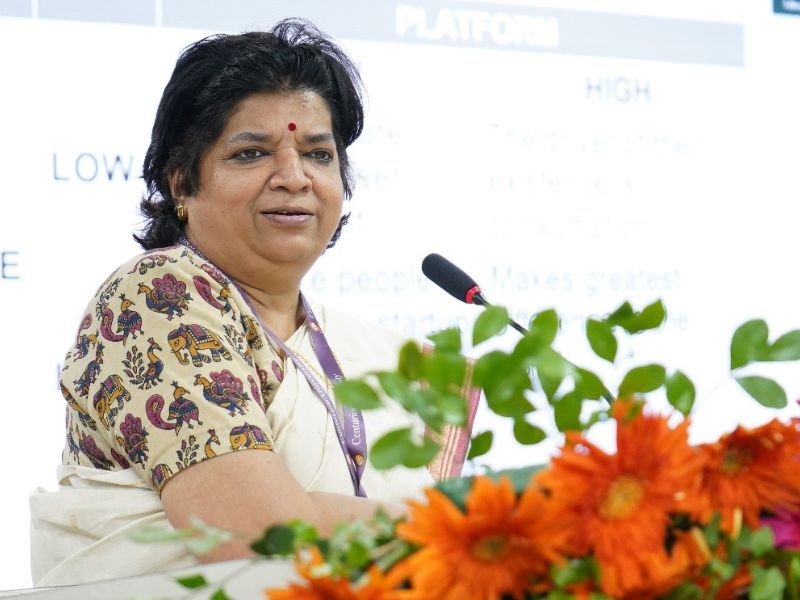Bridging gap between industry & academia: Impact of education 5.0 on employability
 Prof. Supriya Pattanayak, Vice Chancellor, Centurion University Odisha
Prof. Supriya Pattanayak, Vice Chancellor, Centurion University Odisha
National Educational Policy 2020 lays increased emphasis on skill-based learning. It is in tune with the changing times, where not just theoretical knowledge is imparted to students, but ample attention is paid to learning the practical aspects of it. As the focus has shifted to Applied Learning through on-campus labs, hands-on Action Learning via LIVE production, and practice-based instruction. Furthermore, collaboration between academia and industry is needed today, more than ever. It helps students better understand the concepts and lessening the learning gaps. Education 5.0 ensures that a student passing out of university is ready to be absorbed by the industry, instead of starting as a fresher and learning on the job.
Till recently, internships were encouraged and incorporated into academic courses to give students hands-on experience. However, it was seen that students returned with a very macroscopic experience, instead of the experiential learning or hands-on competence. This transition from traditional, theory-based education to applied learning and action learning inside the university environment will need concerted efforts by universities. This can be accomplished by transitioning to within-campus industries, which can generate enthusiasm, dedication, and the determination to construct on-campus in-house market-related product development and manufacturing units.Manufacturing units within university campuses, as well as industry partnerships, allow students to gain a deeper understanding of their business while also giving hands-on training before entering the profession, which will make the students stand out from the crowd.
Universities must promote entrepreneurship and employability by establishing a variety of on-campus manufacturing facilities and labs supported by prominent firms from many industries, such as Yamaha, Schneider Electric, Dassault Systems, and others. Along with theory, there must be a parallel model that covers fundamental steps such as product design, development, patent, publication, production, and commercialisation. While an engineer should receive practical experience constructing e-rickshaws or designing automobiles as part of his degree program, an agriculture student must be knowledgeable about the application of technology to maximise yield.
As more institutions establish manufacturing facilities, student start-ups, or social entrepreneur incubators, students will benefit from greater experiential learning opportunities. The foundation for achieving these products and the product-centric strategy will be set by close collaboration with a variety of sectors for institutional and private mentoring. Furthermore, graduates will have the confidence to progress the nation as entrepreneurs as well as productive members of the skilled labour force.
We at Centurion University saw the benefit to students first hand. Over the last ten years, the nutraceutical business has grown multi-fold. This has created a demand for employees who are well-versed with this industry’s complexities, including substantial research and development. When Centurion University created its BTech in Phytopharmaceuticals program, the purpose was obvious. With a focus on technological research and instrument development in the pharmaceutical business, students who graduate should be familiar with the industry’s work ethics and requirements. Our faith in skill-based education bore fruition when Himalaya, one of India’s biggest nutraceutical brands, employed all of the students who graduated from this course.
Educational institutions need to understand that they will play a key role in not just shaping the future of the students but of the nation as well. To develop such universities, a persistent and honest effort is required, as there are no shortcuts. Because there is so much to be done, the government will also play a key role here. Furthermore, such education must be inclusive, with tribals, SCs, STs, and economically deprived strata having equal access to it. When I talk about inclusivity, we should also consider students with varying intellect levels and qualifications. Skilled workforce is required for various roles in multiple sectors and everybody has the chance to outdo themselves. We will be able to produce a workforce that is prepared for the problems that the future may bring if we include them and meet their educational needs. A university’s true standing can be assessed by the quality of education and inclusivity it provides.
Also read: How to integrate skill learning into higher education curriculum
















Add comment